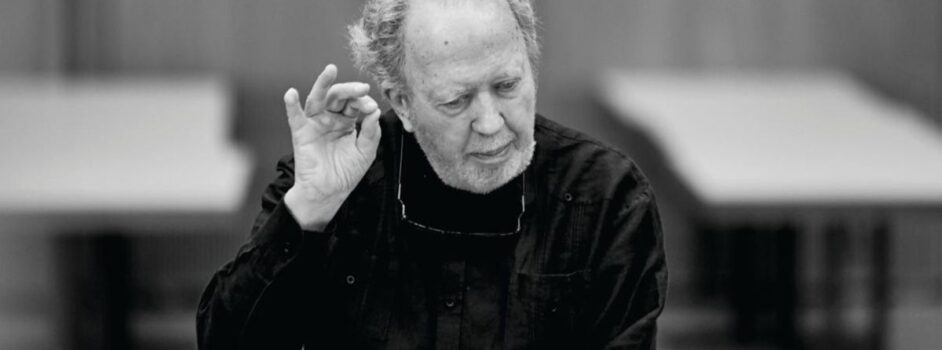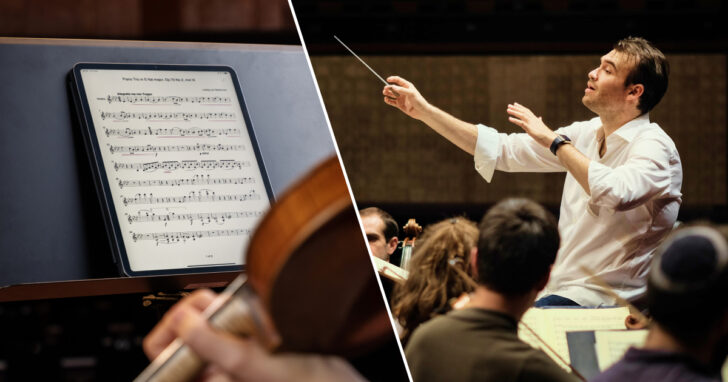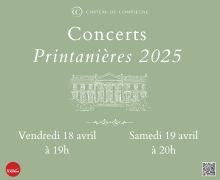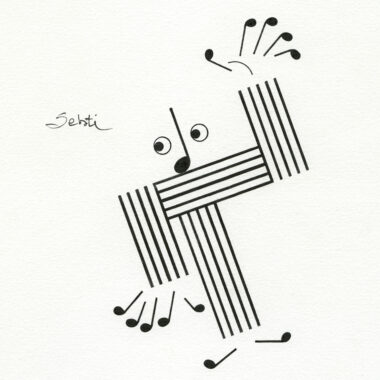Plus de détails
Conductor Boian Videnoff is the Artistic and General Director of the Mannheimer Philharmoniker and the founder of the start-up Enote, a new sheet music app. To better understand what is at stake, we have also interviewed the young Chief Technology Officer and co-founder Evgeny Mitichkin.
ResMusica: Let's start with what Enote does. For musicians who are used to sheet music on paper, how would you describe your service? And what is the benefit for the musicians?
Boian Videnoff: Working with our digital scores is so much faster and more productive than with paper! Quick navigation by movements or bars, personalising the music size and notation style, quick jumps to Repeats, D.S., D.C. and Coda, transposing in other keys, looking up passages in the full score, automated annotations by rules – even having the device listen to your playing and turn the page in the right moment for you – all of these features come only with native digital scores. Enote gives you access to our digital sheet music library, and you can search it with filters and discover new repertoire.
ResMusica: Now, for musicians who are already using some other competing apps to read music on a tablet, what differentiating features do you bring?
Boian Videnoff: Until now, digital sheet music meant PDF-scans. It also meant using a PDF reader app without a centralised and organised sheet music library – users must procure and organise their files themselves. Besides, with PDFs there is no possibility of interaction with the musical content – it is static and fixed. Enote is the only app on the market that offers a library of truly digital music scores. The works are all organised, instantly accessible, and you can interact with them in ways that are impossible with PDF-scans or paper.
ResMusica: Your service is provided through a monthly subscription. Do you aim to be the Spotify for sheet music?
Boian Videnoff: Yes, from a content perspective you can say that. We add thousands of scores every week, and our target is to have more than 150.000 scores available by the end of the year. But Enote is much more than just a library. It is a fundamental industry shift from analogue to digital. You can compare it to using Google maps instead of paper maps, or using Microsoft Word instead of typewriters.
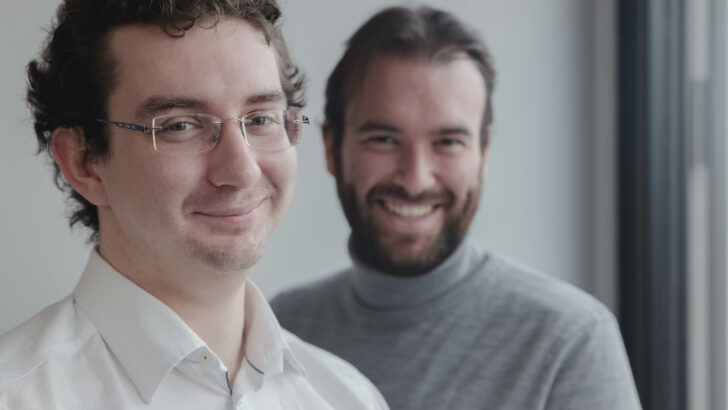 ResMusica: We would like to go more in-depth on the technological part of your project, and ask Evgeny Mitichkin, co-founder and Chief Technology Officer. Evgeny, you say that Enote is built on Artificial Intelligence, simplified as AI. Honestly, AI is often a buzzword to impress people who don't understand much about technology. Can you be more specific on the “intelligent” part of your technology? In other words, what did you do that would not have been possible ten or maybe even five years ago?
ResMusica: We would like to go more in-depth on the technological part of your project, and ask Evgeny Mitichkin, co-founder and Chief Technology Officer. Evgeny, you say that Enote is built on Artificial Intelligence, simplified as AI. Honestly, AI is often a buzzword to impress people who don't understand much about technology. Can you be more specific on the “intelligent” part of your technology? In other words, what did you do that would not have been possible ten or maybe even five years ago?
Evgeny Mitichkin: AI can definitely be a buzzword, but beneath the hype, it's a powerful tool for processing massive amounts of information and making decisions based on that data. Enote's AI system uses Deep Learning and Computer Vision techniques to recognise thousands of visual music notation elements across millions of score pages and versions, then reconstruct these semantically in our digital format. Five years before we started out, the AI frameworks and computational power needed for a project like this were out of reach for a start-up like us. Thanks to rapid advancements in these areas, our ambition has gone from “impossible” to “hard… but doable”, so we started the project at the right time.
ResMusica: What have been the three most significant technical challenges you had to overcome, and why?
Evgeny Mitichkin: Transitioning written music from a static score into a native digital format was a huge first challenge. After trying some existing platforms unsuccessfully, we realised a better system was required to achieve the level of accuracy needed, and spent two years building the most accurate computer vision system in the field. After conquering this first mountain, scale was our next challenge. Our ambition to build the definitive sheet music library requires bringing tens of thousands of works – all with unique content and most with complex instrumental parts and structures – into our format. We now have a system that can digitise music en masse within a reasonable timeframe. Finally, we were surprised to discover that a consistent, comprehensive and well-structured source of information on the history of composition didn't exist, so we worked with a team of musicologists and data engineers to aggregate and clean the best data from multiple public sources. The result is a powerful and simple search system for retrieving and discovering musical works.
ResMusica: Boian, can you tell us more about your process to collect and digitalise sheet music?
Boian Videnoff: I strongly believe Enote is the largest sheet music digitisation effort in history. We are digitising all existing musical sources in the public domain and run complex algorithms to translate them into digital code. There is a team of musicologist and AI experts who work closely together to make this effort possible. The process starts with selecting the relevant sources, running advanced computer vision analysis to recognise each and every musical symbol, semantically reconstructing the music in a digital format through a fully automated pipeline, and finally rendering it in the app.
ResMusica: Can you tell us more about the musicologists behind the project? Do you have a “Chief Musicologist Officer” maybe? You are very discreet about this aspect.
Boian Videnoff: I can give you more information about our musicologists. Gerrit Bogdahn is leading our musicology department. He is a Musicology lecturer at Berlin University of the Arts, Hanns Eisler and Humboldt University with several published journal articles. We rely on various complementing expertise: Dr Klaus Rettinghaus, the Creator of ‘Bach Digital' online database and one of the main developers of both the Verovio music editor and MEI digital music format. Dr Alexander Pacha is Lead researcher in Optical Music Recognition and lecturer at the Vienna Technical University. Finally, Kaspar Querfurth is a musicologist with pending doctoral thesis in composition, hands-on knowledge of physical music engraving and teaching experience London's Guildhall School of Music and Drama.
ResMusica: On a more personal level, how a musician and conductor like yourself get involved in launching an app?
Boian Videnoff: I have always been interested in technology. In the past years, I became more and more frustrated that the sheet music industry had not evolved and introduced any real technological innovation. As it often happens in life, it was a coincidence that I was friends with a talented IT manager and entrepreneur (Josef Tufan). He brought Evgeny Mitichkin, a brilliant software developer, into our conversations. One thing led to another, and we ended up founding Enote.
ResMusica: Evgeny, let's get back to you. Software engineers like yourself are in high demand all over the planet. Why did you choose to work in the field of sheet music versus other areas of computing?
Evgeny Mitichkin: The domain and its social impact matter a lot for me. Before joining Enote as a co-founder and CTO, I worked for an IT company developing software solutions helping cancer treatment. It is a very exciting and fulfilling feeling – to realise that your efforts prolong someone's life and make it better. At Enote, I believe we make a large social impact, making culture more accessible and affordable, and preserving a crucial part of our cultural heritage.
ResMusica: Boian, when you wake you up in the middle of the night, what makes you sweat or makes you thrilled?
Boian Videnoff: I'm excited that Enote finally brings long-overdue technological innovation to an antiquated market and that it will significantly improve the lives of many musicians. But there is also a much more important cause that excites me: Music has been a central pillar of our society, shaping our human identity for many centuries. With this effort, I'm thrilled that we are preserving our cultural heritage in an unprecedented way and making it more contemporary, accessible and affordable than ever. Ultimately, we make an essential step towards democratising music education around the world.


